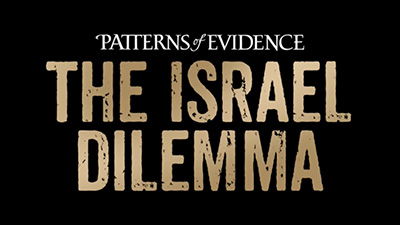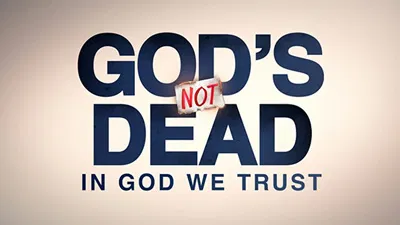God’s Not Dead: We the People Movie Review
God's Not Dead: We the People is a positive movie aimed to encourage Christians to stand up for religious freedom in the United States, even while civil liberties are eroding all around us.
God’s Not Dead: We the People is premiering in theaters nationwide October 4–6, 2021. This latest installment in the God’s Not Dead series focuses on the theme of personal liberty, parental rights, and religious freedom. Overall, the movie is a positive one that the family can attend, showcasing faith, the battle for religious freedom, and Christians motivated to speak up for their rights as US citizens and, more importantly, as Christians. Christians living out their faith are portrayed as inspiring and essential: a worthwhile message in this day and age. While the setting is primarily applicable to the United States and its guaranteed constitutional liberties, it has broader application even in areas without much religious liberty, particularly as anti-Christian sentiment seems to be growing worldwide and even few rights will tend toward none if left undefended.
Spoiler Alert: Those who would rather not know much about the movie before viewing it are advised to skip to the takeaway section at the end.
Plot Overview
The movie begins with an unexpected visit by Rita Dowd from social services, stopping in on a family while they are homeschooling their own and several neighbor children in a homeschool co-op.
The movie begins with an unexpected visit by Rita Dowd from social services, stopping in on a family while they are homeschooling their own and several neighbor children in a homeschool co-op. Miss Dowd identifies as self-partnered and then asks the kids what subject they are studying. Pastor David Hill replies, “Reading and theology,” and she shuts him down when he says he’s a pastor. During her observation, one of the children read Genesis 7, and Dowd mutters with dissatisfaction and later asks the teacher what sin the animals of Noah’s time committed to get “wiped out.” The teacher just stares with her mouth open.
Two Battlegrounds
The scene then shifts to DC where the fictitious Senator Robert Benson is speaking about a bill he wants to push through regarding education. This legislation won’t be anywhere close to one that most Christian homeschoolers will want to adopt in their homes, as it includes common core and other secular agendas which are clearly opposed to biblical Christian values.
Meanwhile, Pastor Hill at first tells parents that they may want to “tone down” their curriculum, as his past experience has convinced him that fighting city hall is a waste of time. But later, he sees the importance of standing firm on these issues and changes his mind after recalling a meeting with his friend, a Nigerian pastor. This pastor shared from experience that in Nigeria, Christians tend to have a much deeper faith which has been honed by persecution, causing them to have a daily reliance on God.
Soon, the co-op parents receive a court order for a hearing on their curriculum. Dowd (the social worker with a clearly negative opinion of homeschooling and the Bible) testifies that there were several deficiencies with the co-op: lack of instructional effectiveness, an environment inferior to a group-learning experience, the parents’ inability to cover all intellectual areas, and absence of sufficient equipment, especially in the area of the sciences. All of these are unsubstantiated and cannot have been observed by Dowd. She states to the judge (real-life TV host and commentator Judge Jeanine Pirro) that her agency is concerned about the students acquiring sufficient skills for what she deems to be “good citizenship” and further learning. Judge Neely orders the co-op to adhere to district norms, or their kids will be sent back to public school. If they refuse, they would be fined $1,000 per day, cited with Contempt of Court, and arrested. (Note that much of this script element seems implausible, as typically social workers don’t arrive unannounced, and there is no way a local judge is going to overrule a state law which permits homeschooling—most states presently have few or no restrictions.) Judge Neely soon finds out that her own daughter is friends with one of the homeschooled kids and is angry with her for her ruling.
Congressman Daryl Smith, aware of the co-op’s dilemma, tells Pastor Hill that the new chair of the education board is Senator Robert Benson, who views religious beliefs as anti-rational, anti-science, and anti-social. The homeschool co-op families were encouraged to go to DC to meet with Congressman Smith, who asked for input on the education bill. Smith calls common core an agenda with the aim of discrediting the Founding Fathers and making our liberties whatever the government decides.
An arrogant Congressman Benson privately admits to Pastor Hill that the committee’s mind is already made up and that they will pass the new curriculum standards.
Miss Chesney is also in DC and testifies that homeschool is unusual, unnecessary, and borderline antisocial. She wants to closely monitor or outlaw homeschooling. An arrogant Congressman Benson privately admits to Pastor Hill that the committee’s mind is already made up and that they will pass the new curriculum standards.
Later, Pastor Hill testifies in place of Congressman Smith (who gives up his time slot) and starts by pointing out that the numerous monuments in DC show that the role of government is to serve the people of the United States. He then passionately brings the point to the Constitution and its guarantee of freedom and liberty, which he asserts that the politicians in Washington, DC, have tried to take away from “We the People.”
The Best Defense?
Sadly, Pastor Hill’s defense is primarily inspirational and historical in nature, and he fails to bring any positive evidence for homeschooling, like smaller teacher-to-student ratios, better standardized test scores, individualized learning, and so forth. Thankfully, some of the homeschoolers mentioned such things. Although there is a strong emotional response to Pastor Hill’s speech, it seems that a balanced approach might have had more impact on the Congressional subcommittee.
Towards the end of the movie, local Judge Neely backs down from her mandate that the homeschool cooperative must abide by district standards. Undoubtedly, her daughter’s influence has some effect on her decision. It would seem things are back to normal and that the efforts of Smith, Hill, and the homeschool families have been successful.
Takeaway
While the scenario is a bit farfetched and the movie characters are a bit contrived, the truth remains that Christians do need to defend their rights or risk losing them.
While the scenario is a bit farfetched and the movie characters are a bit contrived, the truth remains that Christians do need to defend their rights or risk losing them. And truth is often stranger than fiction: there have been cases where judges, school boards, and other “governing” agencies have overstepped their bounds. 1 Time and time again, we see the slippery slope of eroding what seems to be commonsense standards and further intolerance of biblical ideas and Christians as a whole. Had Christians consistently defended their rights, there wouldn’t be so much ground to reclaim when they do.
Footnotes
- See for example these news stories over the last decade:
- https://www.lifesitenews.com/news/state-lawmakers-target-homeschoolers-for-intrusive-in-house-visits-without/
- https://www.city-journal.org/html/connecticut-targets-homeschoolers-11438.html
- https://www.christianheadlines.com/contributors/michael-foust/virginia-county-targets-religious-exemption-for-homeschoolers.html
Recommended Resources

Answers in Genesis is an apologetics ministry, dedicated to helping Christians defend their faith and proclaim the good news of Jesus Christ.
- Customer Service 800.778.3390
- Available Monday–Friday | 9 AM–5 PM ET
- © 2026 Answers in Genesis






